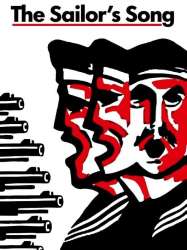Hilmar Thate is a Actor Allemand born on 17 april 1931 at Saalkreis (German)

Source : Wikidata
Hilmar Thate

Filmography of Hilmar Thate (11 films)
Actor

The Ninth Day (2004)
, 1h38Directed by Volker Schlöndorff
Origin German
Genres Drama
Themes Films about religion, Political films
Actors Ulrich Matthes, August Diehl, Hilmar Thate, Bibiana Beglau
Roles Bischof Philippe
Rating69%





Henri Kremer, a Catholic priest from Luxemburg, is imprisoned in Dachau. He experiences the horrors of the camps, including the crucifixion of some of his fellow prisoners, when one day he is given an unexpected leave of nine days. He returns to his native city, where the young SS officer Gebhardt tells him that he should convince his bishop to cooperate with the Nazis. Gebhardt, himself a former candidate for the priesthood, tries to convince the priest that the role of Judas is just what God wants from him. Kremer is confronted with a hard decision: Should he betray his Church or should he return to the concentration camp?

Veronika Voss (1982)
, 1h44Directed by Rainer Werner Fassbinder
Origin German
Genres Drama, Crime
Themes Medical-themed films, Films about drugs, Films about sexuality, Films about psychiatry
Actors Rosel Zech, Hilmar Thate, Annemarie Düringer, Doris Schade, Erik Schumann, Günther Kaufmann
Roles Robert Krohn
Rating75%





The film is loosely based on the career of actress Sybille Schmitz and is influenced by Billy Wilder’s Sunset Boulevard.

Angels of Iron (1981)
, 1h45Genres Drama, Crime
Actors Hilmar Thate, Katharina Thalbach, Karin Baal, Ilse Pagé, Klaus Pohl, Hanns Zischler
Roles Gustav Völpel
Rating67%






The Elective Affinities (1974)
, 1h43Genres Drama
Actors Beata Tyszkiewicz, Hilmar Thate, Magda Vášáryová, Christine Schorn, Karl-Ernst Sasse
Roles Eduard
Rating61%






Divided Heaven (1964)
, 1h56Directed by Konrad Wolf
Genres Drama, Romance
Actors Renate Blume, Hilmar Thate
Roles Wendland
Rating65%





While recovering from a mental breakdown, the young Rita Seidel recalls the last two years, in which she fell in love with Manfred, a chemist who is ten years older. As Manfred became disillusioned with his opportunities in East Germany, he moved to the West. Rita followed him there and tried to persuade him to return but soon realized he would never do it. Rita comes to terms with the past and decides to concentrate on her work and the building of a socialist society. Although some of the characters are shown as overzealous in their support of the regime, for obvious reasons the nature of the East German dictatorship is never depicted or discussed. The Stasi, the all-pervasive secret police headed by the director's brother Markus Wolf, is not mentioned.The film is set in the period immediately before the erection of the Berlin Wall.

The Gleiwitz Case (1961)
, 1h10Genres Drama, War, Thriller, Historical
Themes Political films
Actors Hannjo Hasse, Hilmar Thate, Werner Dissel
Roles KZ-Häftling
Rating69%






Professor Mamlock (1961)
, 1h40Directed by Konrad Wolf
Genres Drama
Themes Films about religion, Political films, Films about Jews and Judaism
Actors Wolfgang Heinz, Hilmar Thate, Peter Sturm, Ulrich Thein, Manfred Krug, Kurt Jung-Alsen
Roles Rolf Mamlock
Rating69%





Professor Mamlock, a respected Jewish surgeon, is certain that the Weimar Republic would survive the political crisis of the early 1930s. He disapproves of his son, Rolf, a communist activist who openly opposes the Nazis. When Hitler rises to power, Mamlock loses his work and his dignity. Realizing the mistake he made by being politically apathetic, Mamlock commits suicide. The film ends with his dead face blending away from the screen, on which appears the inscription: "there is no greater crime than not wanting to fight when fight one must."

Rocník 21 (1958)
Genres Drama
Actors Eva Kotthaus, Jiří Sovák, Raimund Schelcher, Rudolf Ulrich, Hilmar Thate
Rating62%






The Sailor’s Song (1958)
, 2h6Directed by Kurt Maetzig, Günter Reisch
Genres Drama, Historical
Themes Seafaring films, Transport films, Political films
Actors Günther Simon, Raimund Schelcher, Ulrich Thein, Hilmar Thate, Siegfried Weiss, Hans Finohr
Roles Ludwig Batuschek
Rating62%





As the news of the October Revolution sweep through the world, the German High Seas Fleet's command, wary of a mutiny, decides to send all its ships to a suicide mission in the English Channel. Sailors Albin Köbis and Max Reichpietsch are sentenced to death for political activity. When the socialist sailor Steigert, a member of the firing detail, cannot bring himself to shoot them, he is arrested. On the cruiser Prince Heinrich, Steigert's friends Lenz, Lobke, Kasten and Bartuschek receive Vladimir Lenin's transmit to all of mankind calling for peace. Slowly, the sailors in Kiel — all members of different socialist parties: the Social Democrats, the Independent Socialists and the Spartakists — begin to realize the need for a revolution. The workers and the shipmates rebel against the officers, but the political gaps between them lead the uprising to a failure. In the end, many of the rebel sailors attend the foundation conference of the new Communist Party of Germany.

Einmal ist keinmal (1955)
Directed by Konrad Wolf
Actors Brigitte Krause, Friedrich Gnaß, Hilmar Thate

Genres Drama
Actors Gisela Uhlen, Hilmar Thate, Gerd Michael Henneberg, Carola Braunbock, Fred Düren, Ludwig Trautmann
Roles Dr. Bohn
 Connection
Connection

